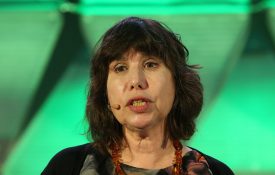-
Beyond “Mama” and “Dada”: Why Babies Learn Certain Words
Scientific American Mind: Twila Tardif, a linguist at the University of Michigan, remembers the day she and her Mandarin-speaking babysitter watched as Tardif’s 11-month-old daughter crawled over to a pen that had just fallen on
-

The Parenting Trap
The word “parenting” did not enter the popular lexicon until the 1950s, and when it did, said APS Fellow Alison Gopnik, it added fuel to a goal-centered perspective of how children should be raised that
-
Tracing the Source of Children’s Racial Attitudes
How children learn about race, ethnicity, and religion depends largely on how their parents present information about different individuals and groups during crucial developmental periods. As part of a symposium at the 2016 APS Annual
-
Turning Down The Background Noise Could Help Toddlers Learn
NPR: Toddlers make their fair share of noise. But they also have a lot of noise to contend with — a television blaring, siblings squabbling, a car radio blasting, grownups talking. Amid all that clatter
-
A Manifesto Against ‘Parenting’
The Wall Street Journal: A strange thing happened to mothers and fathers and children at the end of the 20th century. It was called “parenting.” As long as there have been human beings, mothers and
-
How To Raise Brilliant Children, According To Science
NPR: “Why are traffic lights red, yellow and green?” When a child asks you a question like this, you have a few options. You can shut her down with a “Just because.” You can explain

